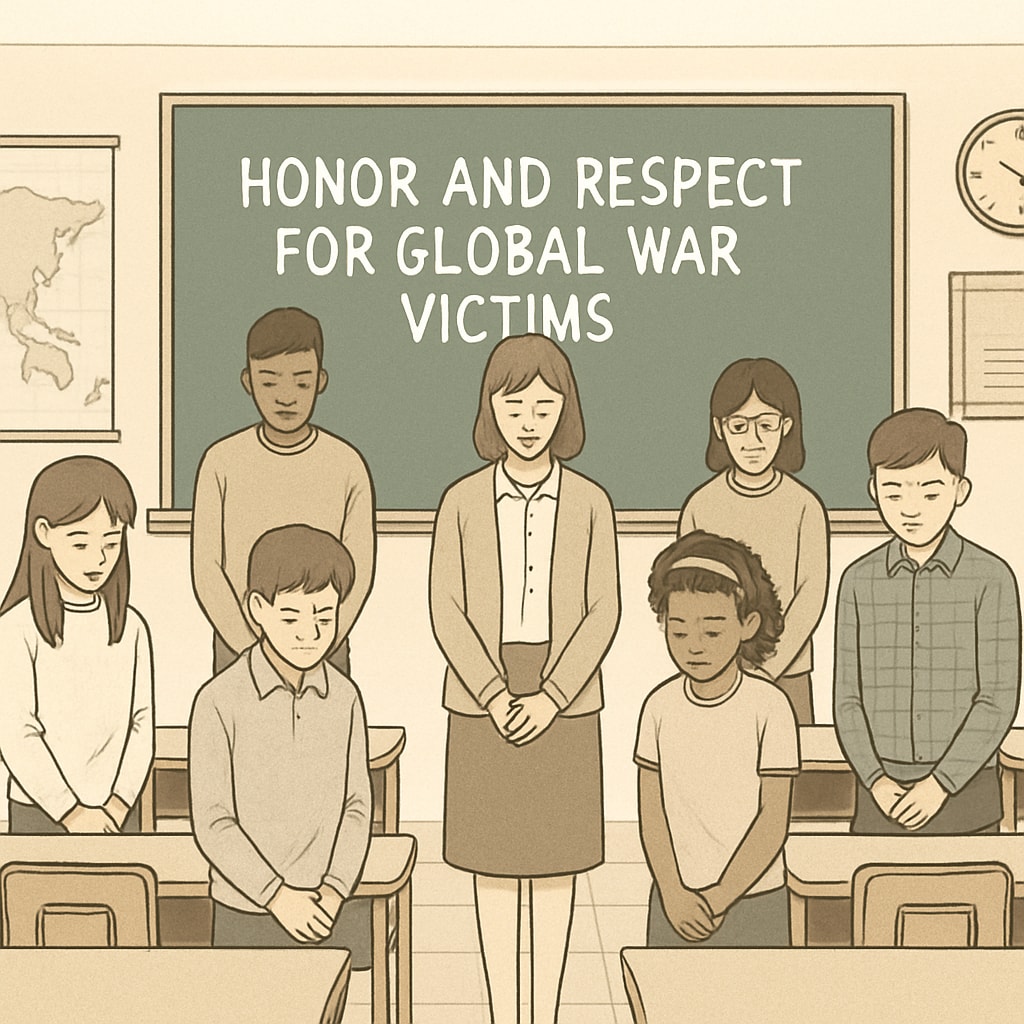In recent weeks, the proposal for a “Gaza moment of silence” in schools has sparked intense debates about how educational institutions should address current human crises. The decision by some schools to generalize this activity to a “global war victims moment of silence” has left many questioning whether this approach dilutes the original intent or responsibly broadens the scope to encompass all human suffering. This controversy highlights the intricate interplay between education, politics, and moral responsibility.

From Specific to General: The Debate Over Gaza and Global War Victims
At the heart of the controversy is the question of specificity versus generalization. Advocates for a Gaza-specific moment of silence argue that the ongoing humanitarian crisis in Gaza, which has been described by some as bordering on ethnic cleansing or even genocide, deserves focused attention. They contend that generalizing the activity to include all war victims risks overshadowing the urgency and gravity of the current situation in Gaza.
On the other hand, proponents of the broader approach believe that focusing solely on Gaza may inadvertently politicize the activity, alienating certain individuals or groups. By honoring all victims of war globally, schools may foster inclusivity and avoid potential political bias. However, critics argue this form of “pan-humanitarianism” can lead to a lack of meaningful engagement with specific crises.
The Role of Education in Addressing Humanitarian Crises
Education institutions are often seen as safe spaces for fostering critical thinking and empathy. When confronted with real-time humanitarian emergencies, schools bear the responsibility of guiding students to understand these events in a nuanced and balanced manner. However, this responsibility is fraught with challenges.
For example, educators must tread carefully to avoid imposing political ideologies while still encouraging students to engage with global issues. Furthermore, they must decide whether to address crises individually or as part of broader patterns of human suffering. This balancing act places educators in complex positions, where their decisions can have lasting impacts on students’ perspectives.

Finding a Path Forward: Courage, Authenticity, and Responsibility
To navigate these challenges, schools must embrace three key principles: courage, authenticity, and responsibility. Courage involves addressing difficult topics head-on, even when they might provoke controversy. Authenticity means remaining true to the specific realities of crises, rather than opting for generalized neutrality. Responsibility entails guiding students to engage critically with the world around them, fostering empathy without oversimplification.
For instance, schools can create forums for discussion, invite guest speakers, or hold workshops to explore the causes and consequences of humanitarian crises like the one in Gaza. By doing so, they can ensure that moments of silence are not mere gestures but opportunities for deeper learning and reflection.
Conclusion: The Importance of Thoughtful Engagement
The debate over the “Gaza moment of silence” versus a generalized “global war victims moment of silence” underscores the challenges faced by educational institutions in addressing current events. While generalizing such activities may seem like the safer option, it risks losing the focus needed to truly engage with urgent humanitarian crises. Schools must strive to balance inclusivity with specificity, ensuring that their actions inspire meaningful dialogue and awareness.
Ultimately, education is not only about imparting knowledge but also about shaping compassionate, informed global citizens. As schools navigate these contentious issues, they must remain committed to the principles of courage, authenticity, and responsibility, leading the way in fostering a deeper understanding of the world’s challenges.


